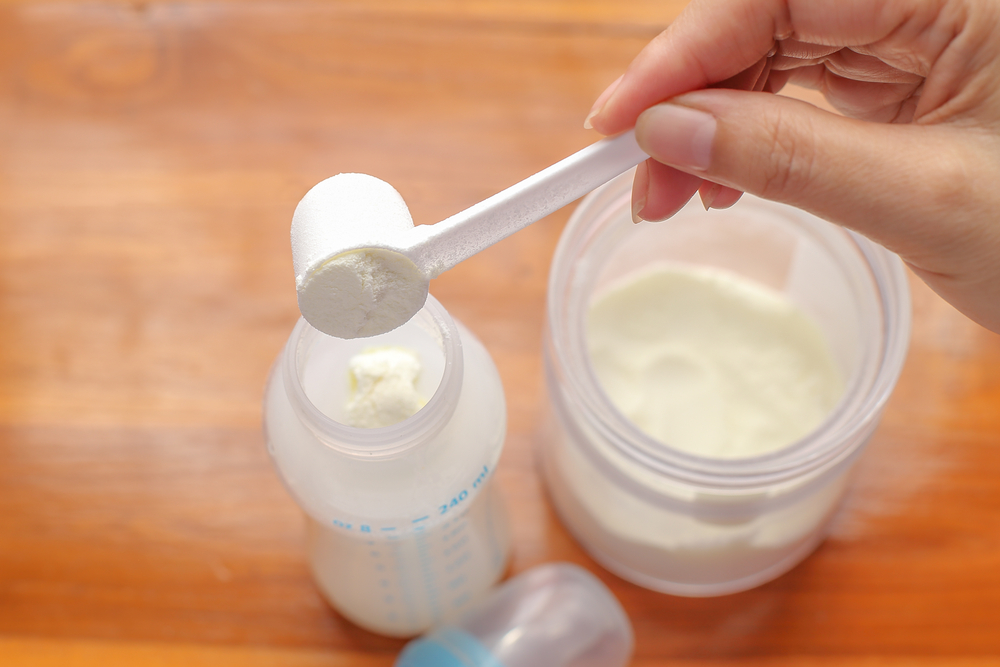Formula feeding is a common alternative to providing infants with the proper nutrition and substances for the growth of a healthy child. While health professionals believe breast milk is best for infants because it protects against various diseases and conditions, it's not always an option for mothers or caregivers.
Baby formula has become especially popular for mothers who struggle to breastfeed or can’t for certain reasons, such as medical conditions, taking medications that could harm the baby and returning to work. Infant formula is manufactured to replicate the benefits of breast milk. However, parents should be aware of some challenges and adverse health effects associated with formula feeding when deciding how to feed their newborns.
Things To Consider When Choosing To Use Baby Formula
To start, a straightforward challenge to formula feeding is the expense. Depending on what type of formula and the size, the price can range from $10 to $30 per container. Over time, the costs of formula feeding can add up compared to breastfeeding, which is free.
One disadvantage of formula feeding is the components and substances within the baby formula. While formula consists of proteins, sugars, fats, and vitamins, it lacks the antibodies found in breast milk. These antibodies are significant in helping infants stay protected against infections and illnesses such as asthma, celiac disease, Crohn’s disease, ulcerative colitis, Type 1 and type 2 diabetes, leukemia and necrotizing enterocolitis. As a result, babies that are formula fed are at a higher risk of these harmful health issues.
Another thing to consider is the manufacturing process of baby formula. It must be manufactured in a sterile facility, so what happens if the formula gets contaminated? Contaminated baby formula could lead to dangerous bacterial infections. One bacteria recently found in powdered baby formula is Cronobacter sakazakii. This bacteria is commonly found in dry or powdered foods and can cause severe bacterial infections that can be fatal for infants. Specifically, infants with conditions such as premature birth or weakened immune systems are more susceptible to these infections.
In February 2022, powdered infant formula produced at an Abbott Nutrition Plant in Sturgis, Michigan, was recalled due to cases of infants having infections from Cronobacter sakazakii. Some infants died from the bacterial infection. These incidents directly led to the temporary closure of Abbott’s production plant. When the facility closed, many health inspections were done, and not only was Cronobacter sakazakii found in samples around the factory, but many other sanitary conditions were violated. There was standing water on the floor, water leaks, and many of the workers were not using the appropriate amount of protective equipment. Because of this incident, the CDC put out notices to inform consumers of baby formula to take extra precautions to protect against Cronobacter.
The formula recall and closure of the Abbott facility resulted in a widespread shortage of powdered baby formula, as Abbott is one of the largest producers in the U.S.
NEC Baby Formula Cases
As mentioned above, infants who are breastfed have a decreased risk of necrotizing enterocolitis (NEC) so another concern for parents who need to use baby formula is that their infants could be more susceptible to this intestinal disease.
NEC is commonly found in premature babies and damages the intestines by causing inflammation. This inflammation can damage tissue in the colon, leading to holes in the intestinal wall. This illness targets premature babies because they have a harder time fighting off infections and commonly struggle with blood and oxygen circulation. Studies have shown that even though baby formula is mostly safe, there is a significant increase in the risk of developing NEC in premature babies if formula fed rather than breastfed. One study even suggested that it is about a 138% increase in the risk of NEC in premature infants who are formula fed.
As a result of infants developing NEC after consuming baby formula, lawsuits have been filed, specifically against two popular brands of baby formula, Enfamil and Similac. NEC baby formula lawyers are filing lawsuits on behalf of families of injured infants claiming that manufacturers Mead Johnson and Abbott Laboratories were aware of the risks baby formula caused for premature infants. Yet, they continued to advertise their products as safe alternatives to breastmilk. People also claim that these companies spend millions of dollars on advertising the superiority of their products while their safety labels and disclaimers are confusing. If your family has been affected by NEC or other harmful elements of baby formula, you should contact an experienced NEC baby formula lawyer who can answer your questions and determine if a baby formula lawsuit is necessary.
Choosing the best way to feed a newborn is a very personal decision. Your family should consider its own circumstances, consult a physician with any questions and decide if breastfeeding, formula feeding or a combination of both is best for your child.










